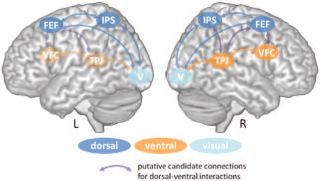
Achieve Peace of Mind with These 20 Mindfulness-Based Stress Reduction Techniques
 In today’s fast-paced and demanding world, stress has become a common companion for many people. The constant pressure to perform, meet deadlines, and juggle multiple responsibilities can take a toll on our mental and physical well-being. That’s why it’s crucial to find ways to achieve peace of mind and alleviate stress. One powerful method to achieve this is through mindfulness-based stress reduction techniques.
In today’s fast-paced and demanding world, stress has become a common companion for many people. The constant pressure to perform, meet deadlines, and juggle multiple responsibilities can take a toll on our mental and physical well-being. That’s why it’s crucial to find ways to achieve peace of mind and alleviate stress. One powerful method to achieve this is through mindfulness-based stress reduction techniques.
Mindfulness-based stress reduction (MBSR) is a practice that combines mindfulness meditation, body awareness, and yoga to help individuals become more aware of their thoughts, emotions, and physical sensations. By cultivating a non-judgmental and accepting attitude towards these experiences, MBSR allows individuals to reduce stress, increase self-awareness, and ultimately achieve a state of peace and calm.
Here are 20 mindfulness-based stress reduction techniques that can help you achieve peace of mind:
1. Mindful breathing: Take a moment to focus on your breath, observing its natural rhythm. This simple act can help bring your attention to the present moment and calm your mind.
2. Body scan meditation: Start from the top of your head and slowly move your attention down to each part of your body, noticing any sensations or tension. This technique helps you become more aware of your body and release physical stress.
3. Mindful eating: Pay attention to the taste, texture, and smell of your food. Eat slowly, savoring each bite, and fully engage your senses.
4. Walking meditation: Take a leisurely walk, paying attention to each step, the sensation of your feet touching the ground, and the surrounding environment.
5. Gratitude practice: Take a few moments each day to reflect on things you are grateful for. This practice can shift your focus from stressors to positive aspects of your life.
6. Loving-kindness meditation: Direct well-wishes and positive intentions towards yourself and others. This practice can cultivate compassion and reduce negative emotions.
7. Mindful journaling: Write down your thoughts and feelings without judgment. This practice allows you to process emotions and gain clarity.
8. Progressive muscle relaxation: Tense and relax each muscle group in your body, starting from your toes and moving upwards. This technique helps release physical tension.
9. Mindful listening: Pay full attention to the sounds around you, whether it’s music, nature, or the voices of loved ones. Really listen and immerse yourself in the experience.
10. Mindful showering: Bring your full attention to the sensations of water on your skin, the scent of soap, and the sound of running water. This practice can turn a mundane task into a meditative experience.
11. Mindful commuting: Instead of getting lost in thoughts or distractions, use your commute as an opportunity to be fully present. Observe the scenery, feel the movement of the vehicle, and be aware of your surroundings.
12. Mindful technology use: Set aside dedicated time to disconnect from screens and gadgets. Be fully present and engaged in activities without the constant interruption of notifications.
13. Mindful stretching: Incorporate gentle stretching exercises into your daily routine. Pay attention to the sensations in your muscles and the movement of your body.
14. Mindful listening to music: Choose calming or uplifting music and listen to it attentively. Allow yourself to be fully immersed in the sounds and let it soothe your mind.
15. Mindful appreciation: Take a moment each day to appreciate the beauty and wonder of the world around you. Notice the small details and find joy in them.
16. Mindful communication: Practice active listening and being fully present in conversations. Give your undivided attention to the person speaking, without interrupting or planning your response.
17. Mindful self-care: Prioritize self-care activities that bring you joy and relaxation. Engage in activities such as reading, taking a bath, or spending time in nature mindfully.
18. Mindful acceptance: Practice accepting yourself and your current circumstances without judgment. Recognize that not everything can be controlled and focus on what you can change.
19. Mindful forgiveness: Cultivate forgiveness towards yourself and others. Let go of past grievances and embrace a more compassionate outlook.
20. Mindful bedtime routine: Create a calming bedtime routine that helps you wind down and prepare for sleep. Avoid screens, engage in relaxation techniques, or read a book mindfully.
By incorporating these mindfulness-based stress reduction techniques into your daily life, you can achieve peace of mind and reduce stress levels. Remember, mindfulness is a practice that requires consistency and patience. Start with small steps and gradually increase your mindfulness practice. With time, you will experience the transformative power of mindfulness in reducing stress and enhancing your overall well-being.






